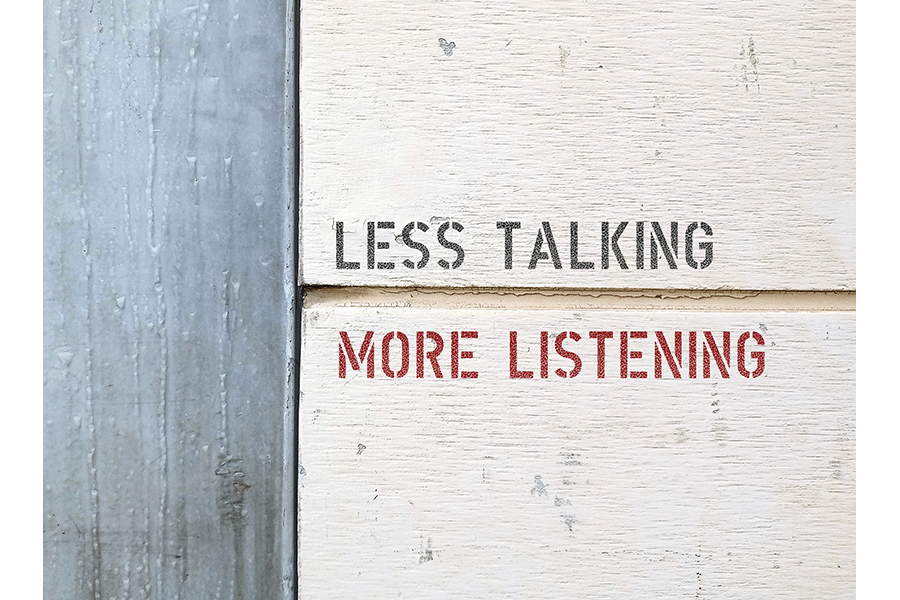Listen to the podcast above or watch the video for the full version. Or just read the highlights below.
We’ve all encountered the classic image of an overbearing, fast-talking salesperson who leaves little room for the customer to engage. This antiquated sales approach, immortalized in films like “Glengarry Glen Ross,” where Alec Baldwin’s character famously imparts the mantra “Always be closing,” has lost its efficacy.
Current research demonstrates that customers prefer a genuine conversation over a one-sided sales pitch. Studies suggest that in sales interactions, salespeople should speak for just 30% of the time, while customers should have the opportunity to contribute 70%.
Reasons We Cling to Talking And Not Listening
However, why do some salespeople still cling to dominating the conversation? Several significant factors come into play:
The Pleasure of Talking
MRI scans and scientific studies have illuminated that talking triggers the brain’s pleasure centers, releasing dopamine, the “feel good” neurotransmitter. Remarkably, in experiments, individuals were even willing to forfeit money to keep talking about themselves.
The Urge to Display Product Knowledge
Sales professionals often feel compelled to dazzle prospects with their extensive product knowledge, which may lead them to inundate potential customers with information during their pitch.
Apprehension About Awkwardness
Salespeople might find it awkward to pose probing questions or introduce topics that customers may not have considered. This fear stems from concerns about not having a sufficient number of prepared questions.
Easier Said Than Done (For Some): Active Listening
The solution resides in cultivating active listening skills. Salespeople should concentrate entirely on what the customer is expressing instead of preemptively planning their responses. Crafting a set of open-ended questions categorized appropriately can serve as a compass, guiding the conversation while permitting the customer’s insights to mold the interaction.
Embracing pauses in the conversation can foster rapport and convey that the salesperson is thoughtfully considering the customer’s input. Above all, active listening equips salespeople to adeptly handle any customer response. Effective sales conversations should unfold like a chain of questions that unearth the prospect’s genuine needs.
In essence, while the inclination to talk about ourselves is deeply rooted in human nature, salespeople must resist this urge. Granting the customer the opportunity to share their perspective can lead to more fruitful discussions and significantly elevate the chances of successfully closing a deal.
Role-Playing
It’s easy to practice active listening when you role play and many tricks are available to accelerate the process. Dennis Collins, host of the Connect & Convert podcast, is taking on a limited number of clients to help install new sales startegies. Contact Dennis before he has a wait list.
- Breaking Through Career Barriers: A Saleswoman’s Story - July 3, 2025
- Steve Jobs Presentation Techniques That Still Work Today - June 27, 2025
- How Selling with Purpose Drives Better Business Growth - June 19, 2025

